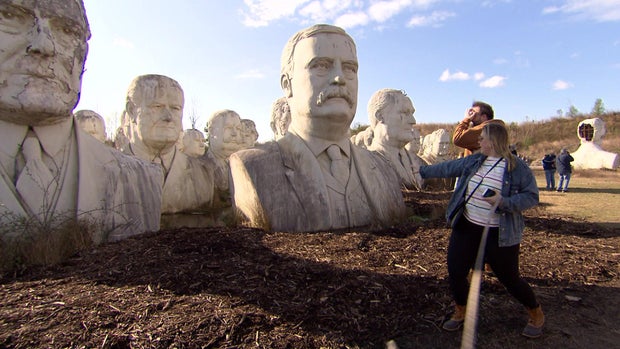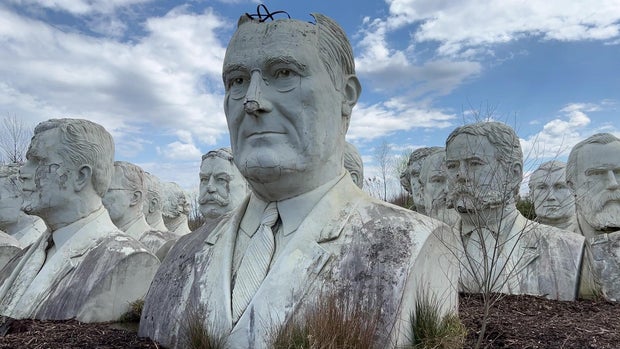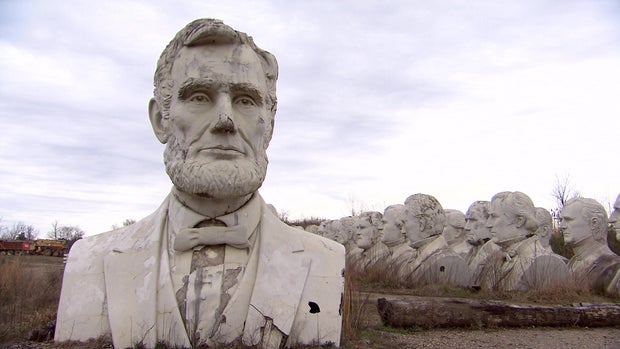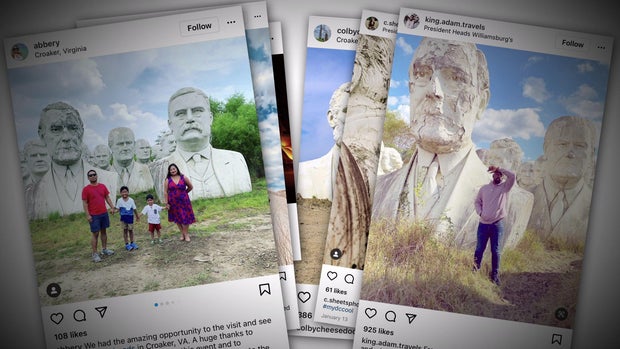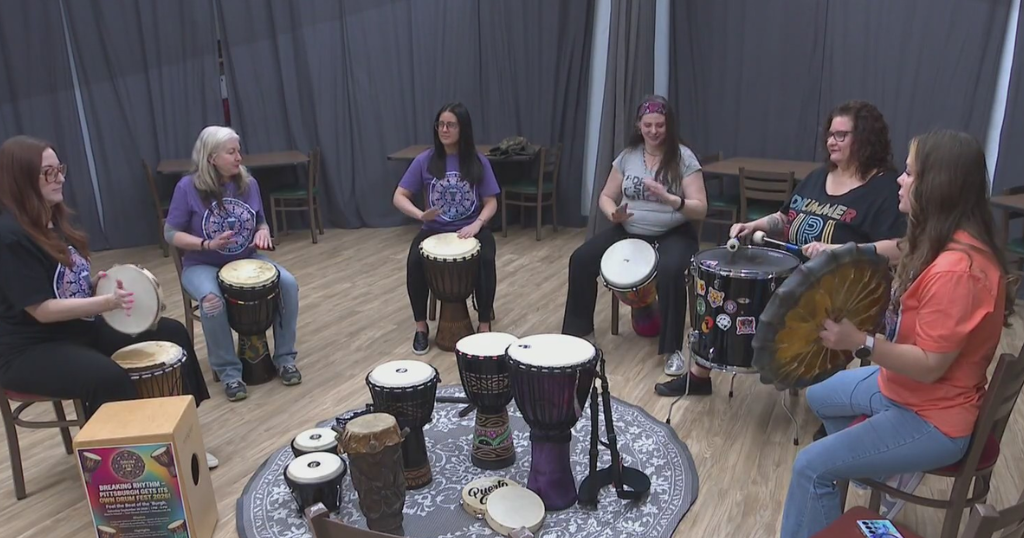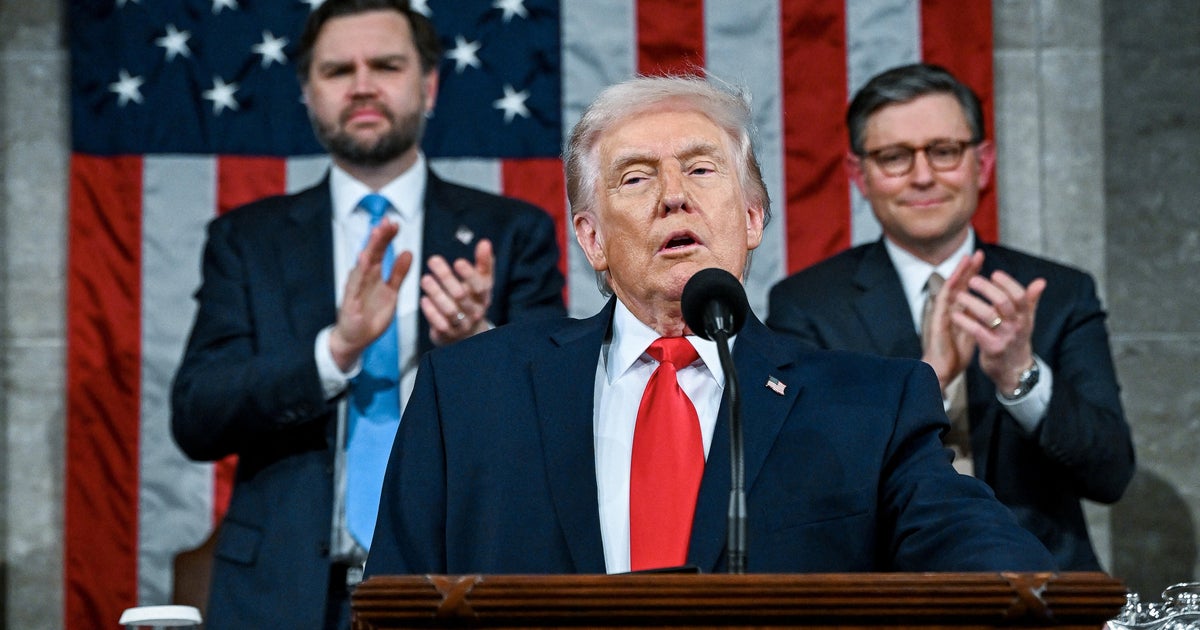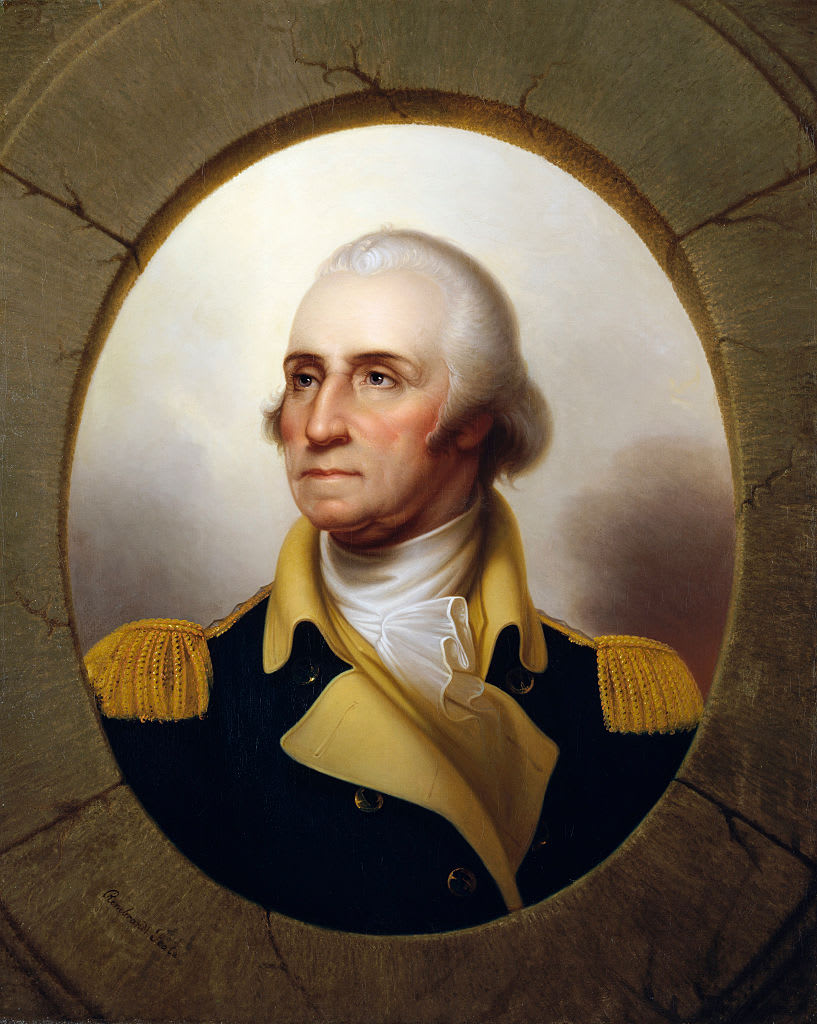Heads of state: A walk among giant presidential busts
If you've always wanted to get close to a head of state, then make your way to this swampy field just outside Historic Williamsburg, Virginia, where gigantic and decaying busts – some 20 feet tall, weighing several tons each – portray every U.S. president from George Washington to George W. Bush.
"They're just huge!" one visitor exclaimed.
"This whole thing is vibe," said another.
But they're an accidental tourist attraction. "You kind of would expect 'em to be, like, in a museum," said Ben. "Instead they're outside, just in the elements."
All on the site of Howard Hankins' recycling center.
Hankins, who is also a builder, had originally helped construct a park for the busts that opened in 2004 to capitalize on the Williamsburg tourism industry. But just six years later, "The economy hit 'em hard," he said. "They just couldn't keep the doors open. And they called me up and asked me if I'd crush 'em, cause I crush concrete."
Correspondent Rita Braver asked, "Why didn't you wanna say, 'Okay, let's get rid of these things. Nobody wants them'?"
"They're our history," Hankins replied. "I don't care who it is. You save it and you learn from it."
So, he decided to use his company resources and move the presidents, which resulted in damage to all of them, some of it major. "Lincoln over there, he got dropped and broke the back of his head open a little. He'll be alright, I can fix him. I restored Jackson all the way. So, he got painted up and he looked really good for a while."
Hankins just plopped the heads on his property. But quietly, word got out. Visitors started sneaking in and posting photos on social media, attracting still more attention from history buffs like John Plashal, a medical device sales professional who is also a photographer. Drawn to eerie images of the heads, he asked Hankins to let him come in and take pictures one night.
"Which he obliged, I guess maybe because I was very polite to him," said Plashal. "And then, I was hooked."
So hooked that he convinced Hankins to open the property about once a month, selling tickets online and allowing small groups of visitors and guided tours. "It started out locally, then it expanded to a national thing, and now it's international," Plashal said.
And the decaying heads have gained an even bigger following on social media. One TikTok post has almost eight million views.
It all sort of delights the man who created the statues, 95-year-old David Adickes. "It amazes me," he told Braver. "I'm sorry that they were all busted up. If I'd known that they were gonna be moved, I could've told the guy how to move 'em."
A successful painter and sculptor with prominent works in his native Texas, Adickes was originally inspired by a trip to Mount Rushmore in the early 1990s: "I was overwhelmed, but disappointed I couldn't get closer and look in their eyes."
Braver asked, "You felt like they were just too far away?"
"Yeah. Driving back in the middle of the night, the idea came into my small little brain: wouldn't it be great to do the presidents, not just four but all of them?"
He has his own private collection of giant heads outside his Houston studio, just below a busy interstate.
"It's quite an array," Braver said. "It kind of stops you in your tracks!"
His most recent sculpture is of our 44th President. As the documentary "Building Obama" shows, Adickes first carves a small clay model, then makes a larger styrofoam base, eventually creating molds that are filled with concrete to cast the statues. The shoulders are built separately on wire frames.
He says making one of the busts takes about a month.
Braver asked, "Why do you think it's important for Americans to see statues like these?"
"History," Adickes replied. "Why does anybody have statues of anything, you know? History."
Adickes originally hoped that there would be at least three different centers featuring these busts. But a park in South Dakota, near Mount Rushmore, went out of business. So now, the only place visitors can see them is at that Virginia recycling plant, which drew Jordan Patterson and Eric Nelson, who see meaning in the decay.
"Some of them are crumbling and some of them are new and some of them are more damaged than others," said Nelson. "it's almost like they're still looking over their people, in a way."
"A hierarchy?" suggested Patterson.
"Yeah, and not necessarily putting them on a pedestal, but just the magnitude of what they represented."
And Howard Hankins, who saved these statues, says he will try to preserve them, but not to repair them. As Braver noted, "Some people really like the decay and the way they look, the weathering and all that. Do you?"
Hankins replied, "It does give them more character. I probably will keep them that way."
"A lot of people have really praised you for the fact that you just wouldn't destroy these things."
"I've gotten some touching letters from kids that really affect you, thanking me, and I've had 'em send me a gift card for $10. It's like, are you kidding me?" he laughed. "It's for them, mainly. Let them come out and enjoy them."
For more info:
Story produced by Michelle Kessel. Editor: Lauren Barnello.
